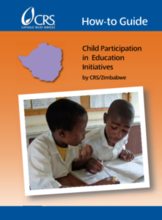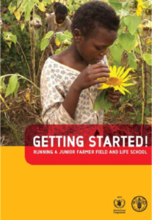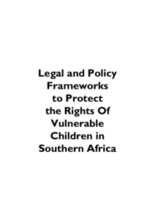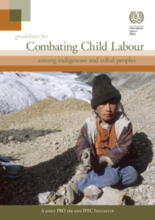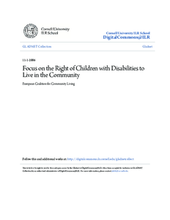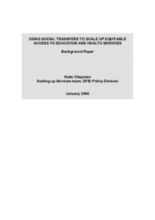Displaying 311 - 320 of 349
This Guide provides a number of practical strategies, tips and activities for working with stakeholders to prevent student dropout. Based on the work of CRS/Kosovo, this information is useful for other organizations and government bodies working on student dropout prevention and response within the region.
A study of HIV/AIDS education programs and direction for creating curricula in African schools.
A Guide that highlights successful strategies used to facilitate child participation in educational initiatives in Zimbabwe. Real-life examples are provided for illustration, replication and adaptation by other organizations involved in education programmes.
A guide to setting up, operating and sustaining an agricultural and life skills participatory training program for orphans and vulnerable children (ages 12-18), living in situations of food insecurity.
Reviews legal and policy frameworks for the protection of OVC rights in 10 Southern African countries. Includes key concerns and recommendations. Appendix includes country-specific details of National Policies on Orphans and Vulnerable Children and National Plans of Action.
Guidelines to address the specific needs and rights of indigenous children in the context of child labour. Includes a comprehensive list of follow-up resources.
Advocates for the right of children with disabilities to live in the community. Provides recommendations on how to ensure a successful transition from institutional to community-based care. Focuses on the importance of family support and the right to education.
Identifies strengths and weaknesses of services offered to OVC in South Africa. A detailed list of recommendations suggests improvements to services.
A trainer’s guide for teaching health and life skills to children and young adults based on the experiences of the Mkombozi Centre for Street Children in Tanzania.
This paper focuses on the impact of one form of demand-side policy option - social transfers, particularly cash transfers and vouchers - on access to health and education services by the extreme poor.



